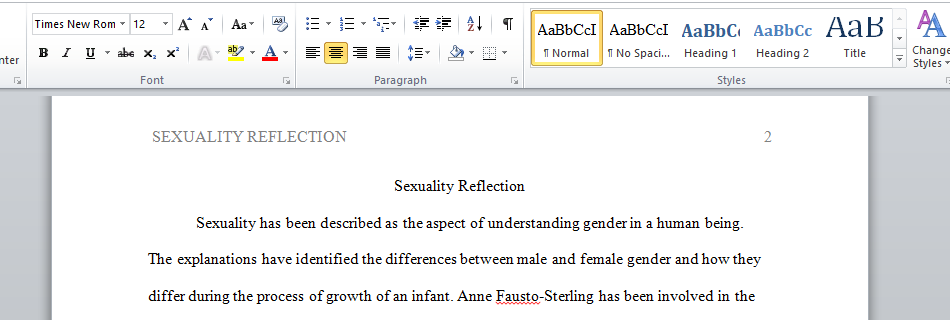What did you learn from these resources about gender/sexuality formation?
social spheres –] in order to enable an understanding of the inseparability of nature/nurture.”
As a leading expert in biology’s understanding of gender development, her dynamic systems theory grayed the black and white of biological sexing. Fausto- Sterling opened up conversations intending to let people know that they were anything but less. “A divide exists between people who accept biological explanations of human difference and those who reject biology in favor of social explanations.”
Now retired, Dr. Fausto-Sterling has published three books on her area of expertise and is a frequent commentator and contributor to media outlets such as The New York Times and PBS. She currently resides at Providence, Rhode Island with her spouse Paula Vogel.
1) Click here to view Dr. Fausto-Sterling’s website for her biography and publications.
http://www.annefaustosterling.
2) To better understand gender identity formation, watch the following video by Dr. Fausto-Sterling.
https://vimeo.com/209451071?
Instructions for Written Assignment: which addresses ideas related to the following questions:
1) What was most interesting to you in reviewing these resources?
2) What did you learn from these resources about gender/sexuality formation?
3) What do these resources tell you about the types of people that do science?
4) What new questions do you have after reviewing these resources?

